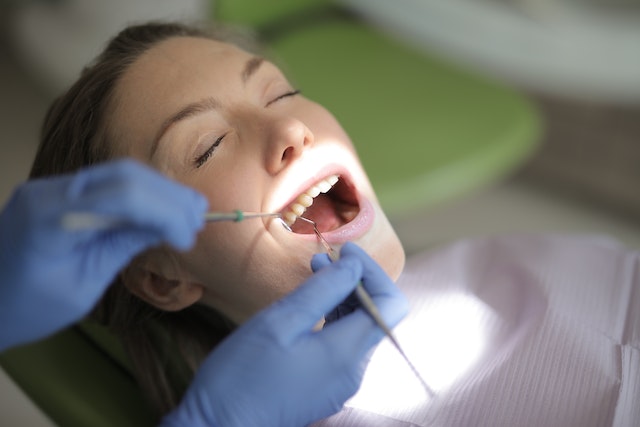Maintaining good oral hygiene is essential for keeping your teeth and gums healthy. A dentist can provide you with guidance on how to maintain good oral hygiene. Follow these tips to keep your teeth and gums healthy.
What is oral hygiene and why is it important?
Oral hygiene is the practice of keeping your mouth clean and healthy. It is important for several reasons:
1. Oral hygiene helps keep your teeth and gums healthy.
2. Oral hygiene helps prevent bad breath.
3. Oral hygiene helps prevent tooth decay and gum disease.
4. Oral hygiene is important for your overall health.
Maintaining oral hygiene is an important part of keeping your mouth healthy and your smile beautiful. Follow these tips and you’ll be on your way to a cavity-free mouth!
What are the basics of oral hygiene?
The basics of oral hygiene include brushing your teeth at least twice a day, flossing once a day, and using a mouthwash. You should also avoid eating sugary foods and drinks, and try to limit your consumption of acidic foods. You should also see a dentist bundoora for a check-up at least every six months.
What are some common oral hygiene mistakes?
There are many common oral hygiene mistakes that people make. Some of the most common ones are not brushing their teeth regularly, not flossing, and not using mouthwash.
Brushing your teeth regularly is one of the most important things you can do for your oral health. You should brush your teeth at least twice a day, and more if you eat a lot of sugary foods.
Flossing is also very important. Flossing removes plaque and bacteria from between your teeth, where a toothbrush can’t reach. You should floss at least once a day.
Mouthwash is another important part of oral hygiene. Mouthwash helps kill bacteria and remove plaque. You should use mouthwash at least once a day.

How can I improve my oral hygiene?
There are a few things you can do to improve your oral hygiene. First, make sure you are brushing your teeth at least twice a day with a fluoride toothpaste. You should also be flossing at least once a day. If you can, try to brush your teeth after every meal. Additionally, you can use a mouthwash to help kill bacteria and freshen your breath.
What should I do if I have a dental emergency?
If you have a dental emergency, it is important to take care of the problem as soon as possible. Here are some tips on what to do:
1. If you have a toothache, take ibuprofen to help reduce the pain.
2. Rinse your mouth with warm water to help loosen any food particles.
3. If the toothache is caused by a cavity, try to remove the food particles with a toothpick.
4. If the toothache is caused by a chip or crack in the tooth, rinse your mouth with warm water and use a cold compress to help reduce the swelling.
5. If you are bleeding from the gums, hold a cold compress against the gums to help stop the bleeding.
6. If you are having trouble breathing, go to the nearest emergency room.
How can I prevent cavities?
Preventing cavities is not difficult, but it does require some effort. You can start by following these tips:
1. Brush your teeth at least twice a day.
2. Use a fluoride toothpaste.
3. Floss at least once a day.
4. Avoid sugary foods and drinks.
5. Visit your dentist for a check-up twice a year.
What should I do if I have gum disease?
If you are experiencing any symptoms of gum disease, such as swollen or bleeding gums, it is important to see a dentist as soon as possible. Gum disease can lead to tooth loss and other serious health problems if left untreated. Your dentist will be able to determine the severity of your gum disease and recommend the course of treatment. Treatment for gum disease may include antibiotics, scaling and root planing, and/or gum surgery.
What are the benefits of good oral hygiene?
Good oral hygiene is important for many reasons. It helps keep your teeth and gums healthy, which is important for your overall health. It also makes your smile look nicer. Good oral hygiene can also help you avoid dental problems down the road.
Thanks to our dentist’s guide to good oral hygiene, you now know the basics of keeping your teeth and gums healthy. Follow these tips and visit your dentist for regular check-ups to maintain your oral health.
